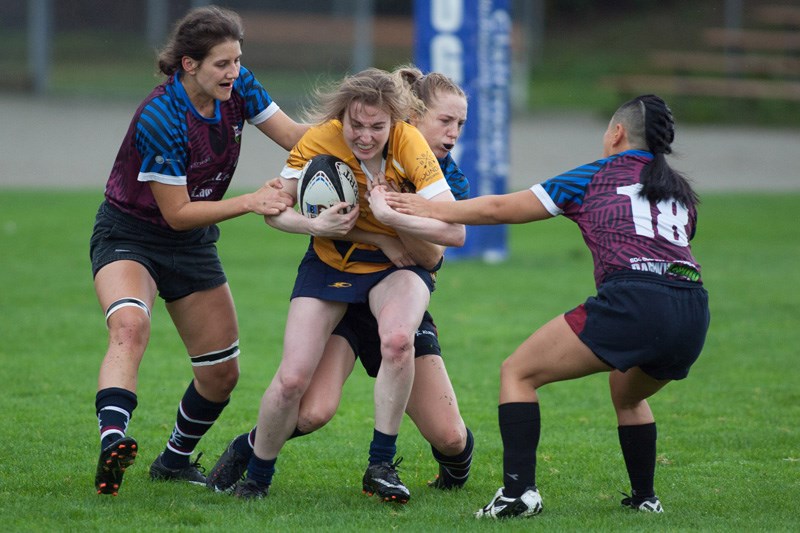There’s few things a rugby player enjoys more than driving their shoulder into the mid-section of an opponent and taking down them to the pitch.
Not this season.
With COVID-19 infections on the rise again, organizers at Coquitlam-based United Rugby Club have come to terms their beloved sport is going to be played a lot differently this fall.
But at least they’re able to play, said technical director and the man in charge of the club’s kids’ programs, Peter Henery.
“Everybody has got that thirst to get back it.”
While the younger players won’t notice much of a difference on the pitch, as they’ve always played flag or touch and will continue to do so to develop their skills and fitness, the non-contact edict now extends all the way up to senior men and women.
Also absent will be the friends, family and supporters along the sidelines, to comply with public health regulations limiting gatherings to less than 50 people.
Henery said that will be one of the most difficult adjustments to make, as the rugby community is very supportive with club mates from other divisions hanging out along the touch line.
“The family bonding aspect of rugby is huge,” he said. “That’s the one piece we can’t recreate.”
Henery said devising the plan to restart rugby was a bit of a rollercoaster through the summer, as infection numbers waned and waxed, fuelling hopes the new reality for the sport could more closely resemble pre-pandemic play then seeing them dashed as infections increased and the BC Rugby Union rolled out very specific guidelines for its sanctioned clubs.
Those guidelines mean United and the other clubs that comprise BC Rugby won’t be able to play matches against each other. Instead, they’ll train and compete within their own organization.
To raise the numbers so sides can be created for touch matches, Henery said a decision was made to make United’s senior teams co-ed.
“This is our new reality,” he said. “Let’s make it the best we possibly can.”
Henery said while there’s been some pushback with registrations down slightly across the board, there’s also an opportunity to attract new players or re-engage lapsed members wary or weary of rugby’s physical demands.
“They won’t need three days to recover from touch rugby,” he said.
And if you’re looking to head down to the local pitch on a Saturday afternoon to see what pandemic rugby looks like, don’t bother. Henery said training sessions this fall are being limited to a couple of weekday evenings a week.
“We want to stay connected with our rugby families, but maybe people don’t want to commit that much time,” he explained.
The 12-week fall season has also been divided into two six-week blocks so returning and prospective players can try the new protocols out before fully committing.
It’s all about being adaptable as the pandemic evolves, Henery said.
“It’s not going to be easy. It will be a significant test for rugby’s resilience.”



